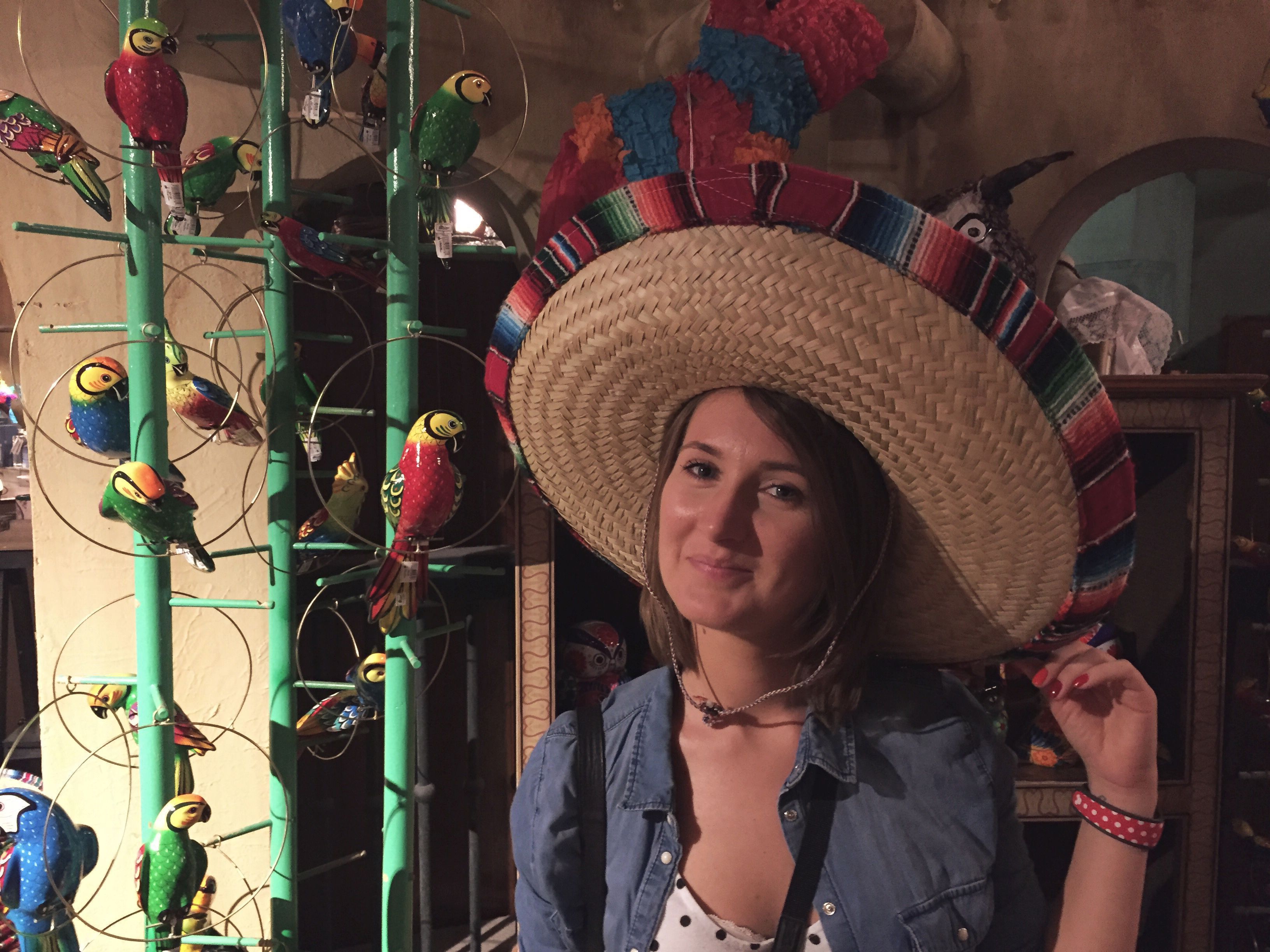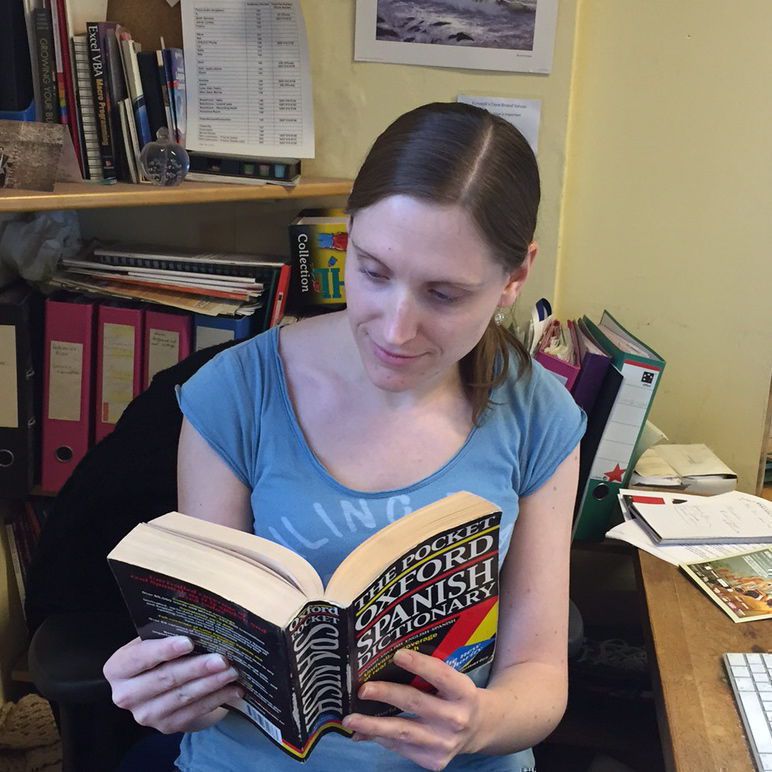Why Russian? Why not?
Lucy was our first ever winner of the Junior Language Challenge and at age 23 has now chosen to take part in the uTalk Challenge learning Russian. Lucy already speaks Spanish, French, Italian, German and Latin and has been learning languages since she was 10 years old.
Why? Why not?
I was talking to some friends at work at the beginning of January, and it came up in conversation that I was learning Russian. ‘Why Russian!?’ one said. ‘Why not?’ was my reply. People are often surprised when I say that I love learning languages. I think to them, it seems a little removed from what I normally do (I work in science). And while I may have decided to work in science instead of languages, that doesn’t mean to say that they aren’t useful to me.
When I was about 10, a teacher from the local secondary school came to teach us Spanish once a week, and I thought it was brilliant! My teacher entered some of our class into the first ever EuroTalk Junior Language Challenge; being able to learn three different languages was even more exciting. Spanish, Greek (my first experience of a language with a different alphabet), and Saami – Santa’s language (northern Finland, to be exact). Taking part showed me that language learning was fun, and set me on a course of lifelong linguistics.
I’d describe myself as a patchwork of languages; I can speak each to a different level, ranging from Italian, my speaking is poor but my translation is decent, to Spanish, where I can happily hold a conversation. My latest is Russian, which I’ve always wanted to learn; I’ve just about got to grips with the Cyrillic alphabet. It’s fun to learn so many languages, it stretches my brain, and I love the feeling of being able to speak to someone in their native tongue, a mixture of pride and respect for their culture. However, that doesn’t mean to say that I don’t have problems! The use of the subjunctive in Spanish will forever escape me (in English we only use it in one specific way, when we say ‘If I were you…’), and those odd little verbs in every language that don’t follow the rules always hide away in the recesses of my mind when I want to use them.
How do I overcome problems? Practice! Practice speaking with others out loud, using odd verbs and new tenses and reading with literature from your chosen language starting with children’s stories and building it up (good for new vocabulary and surprisingly complex!) If you are learning more than one, try to compartmentalise them in your head; have a Spanish head and a French head. My Latin is extremely handy for any new scientific terms, I usually have a guess at what they mean before looking them up. My other languages are great for holidays, trips with work and just keeping my brain active. I certainly don’t intend to stop (I think I may try Basque next): you never know when you might need them!
How to keep New Year’s resolutions
We’re well settled into the new year and we’re all full of hopes and dreams for the next 12 months – learning a new language, getting fit, changing our job, travelling more. Most likely in the first week of the year you were super pumped, ready to drop anything to stick to your main goal(s).
By the time the second week came however, you kind of settled in, relaxed the rules a bit and got back to some of your old habits. When January’s over, your goal will be completely forgotten like it was never there and you’re going to be thinking ‘how silly of me to think that I could learn Spanish’.
That can be one of the ways the future looks. Let’s take a different turn. Lets push through the phase when we want to give up and see what happens. The other road is familiar but wouldn’t it be nice to see what else can happen? What if you did learn Spanish this year? You could read books in Spanish, and you could talk to other Spanish speakers, and on your next holiday in Spain you could strike up a conversation with a stranger and end up making new friends.
Studies have shown that the human brain tends to value immediate rewards more than future rewards. When you set a goal or a resolution you are in fact making plans for your future self and it ‘s easy to imagine how your life can look. But, when the time comes that you actively pursue that goal most people choose immediate gratification and opt to do what they feel like in the moment.
Now that we understand how our mind works, it’s time to find ways to stop this from happening.
- Start slowly and build a ritual. Set yourself to practice for half an hour a day – that’s not too much to ask right? Offer yourself a reward after – if you’re learning a language with uTalk, the reward comes in the form of earning points and we all like to build up to a nice score, right?
- Put aside some of your other tasks. Obviously not work or eating but if you usually browse the Internet while commuting why not replace that with your main goal?
- Keep your eyes on the prize – never lose sight of your motivation. Look at pictures of beautiful Spanish landscapes and imagine yourself having a chat with the locals, or listen to Spanish songs and try to understand the lyrics.
I hope this helps you push through the temptation of giving up and will ultimately get you to your goal. And don’t worry about making mistakes; the only person who loses is the one that gives up, so no matter how slow you are going, it’s still better than if you weren’t doing anything.
And if your goal is to learn a language (or twelve…), there’s still time to join the uTalk Challenge!
Ioana
How do you know when you’re fluent in another language?
The other day, in a moment of idle curiosity, I took an online Spanish test. And it went rather well; when I finished, I was told that I was 87% fluent.
This is very funny, because – to my shame – I haven’t spoken Spanish properly for years. And although the test proved that everything I learnt at school and university is still there in my head, I know the next time I do try and have a conversation, I’ll struggle initially to remember the right words and how to construct sentences correctly. And there’ll definitely be a lot of ‘um’ and ‘er’.
Defining yourself as ‘fluent’ or ‘not’ seems like a simple enough task. Personally, I’d define fluency as the moment you’re able to have a conversation in another language without hesitation, just as you would in your own native language.
But is that setting too high a standard for myself? Surely what I’ve just described is one step on – what we would call native level?
So, I asked a few other EuroTalkers how they define fluency. A couple of responses were very much like mine:
“When you’re able to have a conversation (spoken or written) without making mistakes, without having to pause to think about words and grammar and without referring to a dictionary or other ‘cheat-sheets’. Be able to use the more complex features of a language with ease (e.g. conditionals, obscure tenses).”
“Speaking another language without having to think about it.”
While a couple were willing to be a bit more flexible:
“When you have enough of the language to get through a visit to the country, you can understand a local and they can understand you back when you speak their language.”
“I think minor mistakes are permitted as long as the other one understands you.”
And another one came at the question from an angle I’d never considered:
“You’re able to have any conversation about general knowledge, not specific fields like medicine, for example.”
But there was one thing all the answers seemed to have in common: the key to fluency is confidence, whether you know all the words or not. And that’s why I can’t think of myself as 87% fluent in Spanish; yes, I understand how the subjunctive works, and perhaps I’d even say that I can read the language fluently – but that doesn’t mean I can confidently have a conversation with someone about the weather.
What do you think ‘fluent’ means? Are you fluent in any other languages?
Liz







